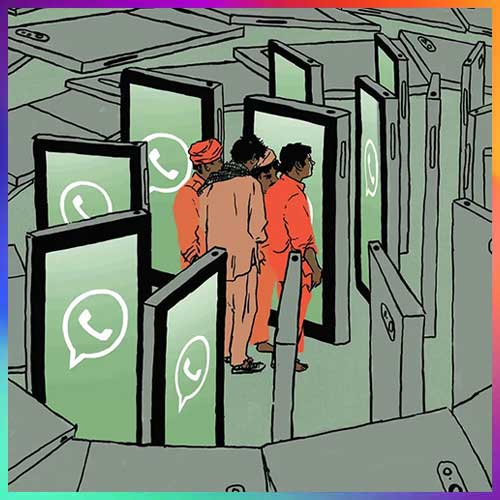
WhatsApp, the dominant messaging platform in India with over 200 million users, has become the center of a escalating misinformation crisis, leading to several tragic incidents of mob violence. The rapid, encrypted spread of fake news and hoaxes has fueled mass hysteria and communal tension across the country.
The article highlights the deadly consequences of these viral messages. In Balaghat, Madhya Pradesh, a mob brutally attacked two innocent men falsely accused of being organ harvesters, based on a widespread Hindi-language message. Similarly, in Bengaluru, a rumor about 400 child traffickers led to the fatal lynching of a 26-year-old migrant construction worker who was mistakenly identified as a kidnapper. False child abduction messages have resulted in at least three deaths this year, underscoring the lethal impact of digital misinformation.
WhatsApp, owned by Meta, acknowledges that some users spread "harmful misinformation" and has intensified efforts to educate users on safety features and how to identify fake news. The company is testing features like labeling forwarded messages but has refused to compromise its core end-to-end encryption technology.
The Indian government has engaged with WhatsApp to push for stricter oversight. This has intensified calls for social media platforms to share user data with law enforcement to trace the originators of false information.
The push for data sharing alarms privacy advocates, who fear such measures could be used to suppress free speech and target political opponents, a concern voiced by the UN Special Rapporteur on Freedom of Expression, David Kaye.
Meanwhile, the government is moving forward with regulatory changes. The central bank has mandated that payment firms store data locally, and the Ministry of Information and Broadcasting issued a tender to monitor social media for fake news.
The hoaxes extend beyond violence, including false medical advice (like an unconfirmed Nipah virus warning in the northeast), fabricated job offers, and baseless religious warnings. As India grapples with cheap mobile data and a billion phone subscribers, the unchecked spread of misinformation on WhatsApp continues to claim lives and deepen societal divides, testing the delicate balance between public safety and user privacy.
See What’s Next in Tech With the Fast Forward Newsletter
Tweets From @varindiamag
Nothing to see here - yet
When they Tweet, their Tweets will show up here.





























